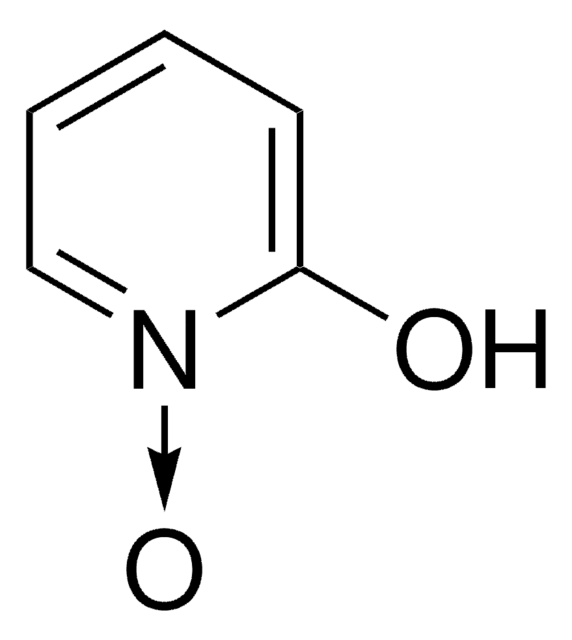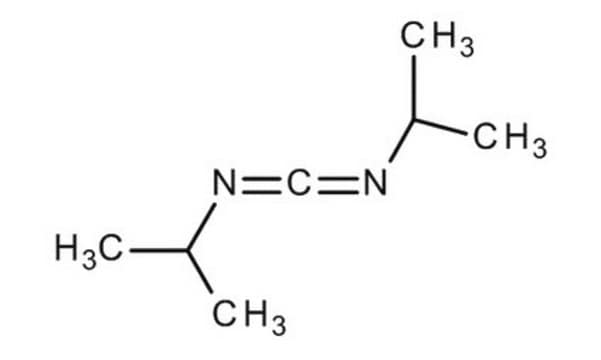233412
Ethyl (hydroxyimino)cyanoacetate
97%, for peptide synthesis
Sinónimos:
Ethyl cyano(hydroxyimino)acetate, Ethyl cyanoglyoxalate-2-oxime, Ethyl isonitrosocyanoacetate
About This Item
Productos recomendados
product name
Ethyl (hydroxyimino)cyanoacetate, 97%
assay
97%
form
solid
mp
130-132 °C (lit.)
application(s)
peptide synthesis
SMILES string
CCOC(=O)C(=N\O)\C#N
InChI
1S/C5H6N2O3/c1-2-10-5(8)4(3-6)7-9/h9H,2H2,1H3/b7-4+
InChI key
LCFXLZAXGXOXAP-QPJJXVBHSA-N
¿Está buscando productos similares? Visita Guía de comparación de productos
General description
Ethyl (hydroxyimino)cyanoacetate is also called as Oxyma. It is a highly efficient greener alternative for the amide and peptide synthesis.
Application
Storage Class
11 - Combustible Solids
wgk_germany
WGK 3
flash_point_f
Not applicable
flash_point_c
Not applicable
ppe
Eyeshields, Gloves, type N95 (US)
Certificados de análisis (COA)
Busque Certificados de análisis (COA) introduciendo el número de lote del producto. Los números de lote se encuentran en la etiqueta del producto después de las palabras «Lot» o «Batch»
¿Ya tiene este producto?
Encuentre la documentación para los productos que ha comprado recientemente en la Biblioteca de documentos.
Los clientes también vieron
Nuestro equipo de científicos tiene experiencia en todas las áreas de investigación: Ciencias de la vida, Ciencia de los materiales, Síntesis química, Cromatografía, Analítica y muchas otras.
Póngase en contacto con el Servicio técnico










![COMU 1-[(1-(Cyano-2-ethoxy-2-oxoethylideneaminooxy) dimethylaminomorpholino)] uronium hexafluorophosphate Novabiochem®](/deepweb/assets/sigmaaldrich/product/images/237/337/13566c06-8931-4cc2-8621-c8742a392cd6/640/13566c06-8931-4cc2-8621-c8742a392cd6.jpg)
